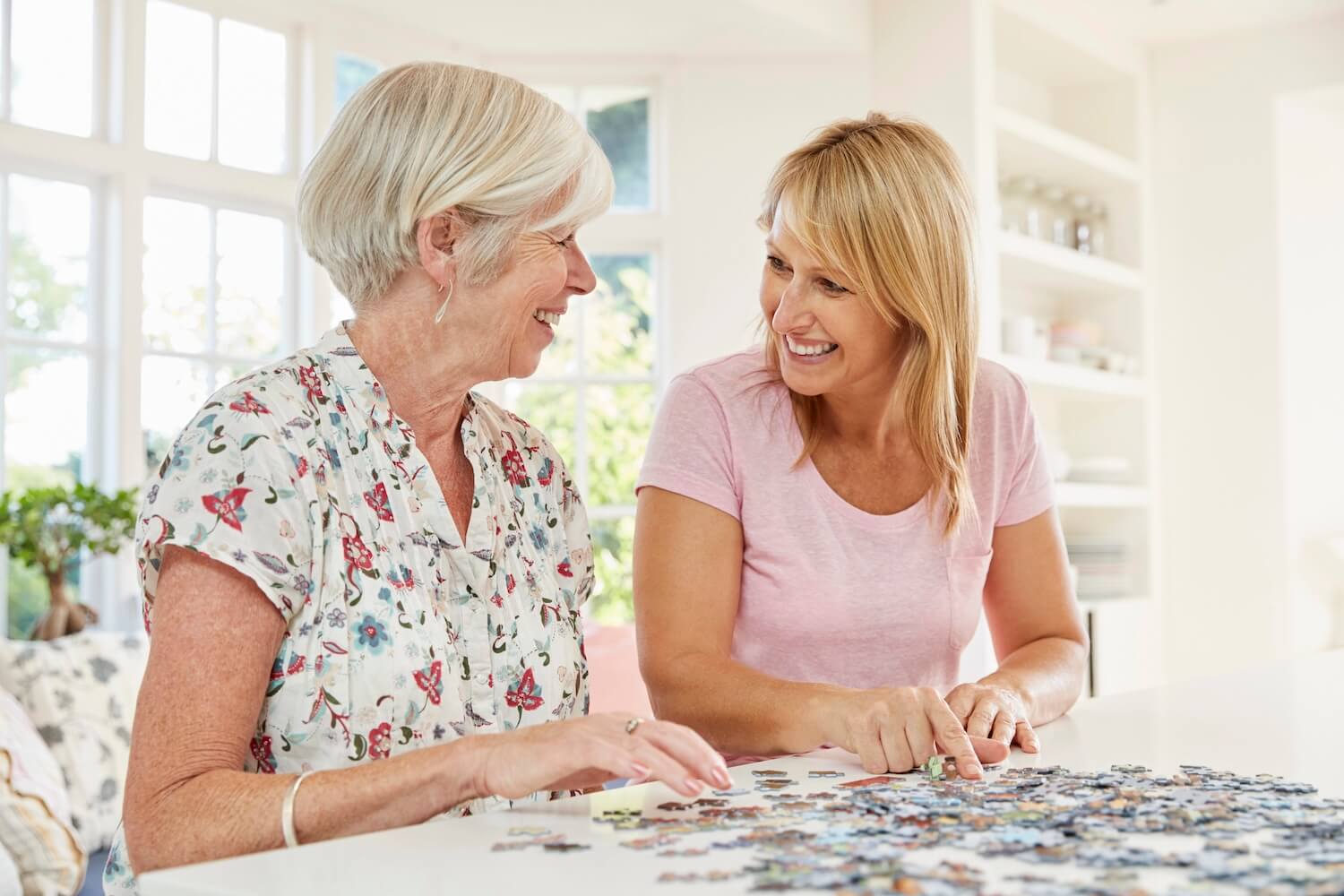Producing a Safe and Supportive Atmosphere for Alzheimer's Care
The production of a helpful and safe atmosphere for individuals with Alzheimer's is vital in enhancing their top quality of life. This involves not just physical adaptations within the home, such as lessening risks and including familiar aspects, but likewise the execution of structured regimens and meaningful activities that satisfy their cognitive needs. In addition, comprehending the mental and psychological dimensions of treatment can significantly influence their complacency and link. Exploring these diverse techniques can disclose critical understandings right into reliable caregiving strategies that might change the day-to-day experiences of both caretakers and patients.
Recognizing Alzheimer's Demands
Regularly, people with Alzheimer's illness display a series of requirements that need tailored techniques to care. As the condition proceeds, cognitive decrease shows up in numerous means, influencing memory, thinking, and also the capacity to execute daily tasks. Caretakers must acknowledge these advancing needs to supply proper support and make sure a higher high quality of life for those affected.
One vital element of understanding Alzheimer's requirements is identifying the importance of routine and familiarity. Individuals typically locate comfort in well-known patterns, which can lower anxiety and complication. Caregivers need to aim to create structured everyday timetables that integrate purposeful tasks straightened with the individual's capabilities and rate of interests.
Furthermore, efficient communication is extremely important. People with Alzheimer's may struggle to express themselves or comprehend complicated language. Caregivers must utilize straightforward, clear language, usage non-verbal signs, and practice energetic listening to promote understanding and link.
Caretakers need to urge engagement in neighborhood tasks or family members gatherings, promoting a sense of belonging and function. Recognizing these varied needs is necessary for creating a supportive care atmosphere.
Creating a Safe Home
Creating a safe home for individuals with Alzheimer's condition is important to decreasing threats and promoting independence. Ensure that paths are well-lit and clear, as correct lighting lowers disorientation and improves mobility.
Incorporating flexible attributes is likewise vital. Set up grab bars in restrooms and near staircases, and consider making use of non-slip floor coverings in damp locations. Furthermore, using different shades for floors and wall surfaces can assist in differentiating spaces, aiding to mitigate complication.
Familiarity is very important for people with Alzheimer's. Customizing the atmosphere with familiar things and photos can reinforce a feeling of belonging and safety and security - Alzheimers Care Charlotte. It is additionally useful to have actually a designated area for everyday tasks, such as analysis or crafting, which can offer framework to their day
Last but not least, implementing a safe exterior room enables risk-free expedition while getting in touch with nature. By attentively designing the home environment, caregivers can substantially boost the top quality of life for individuals living with Alzheimer's illness.
Enhancing Communication Abilities

Non-verbal communication, including facial expressions, motions, and touch, plays a critical duty in communicating empathy and understanding. Maintaining eye call and a tranquil attitude can improve the comfort degree of the person, promoting a feeling of security.
Furthermore, it is necessary to exercise active listening. This involves being completely present, showing perseverance, and enabling the person to share themselves without informative post interruption. Rep might be required; caregivers need to be prepared to review inquiries or subjects, as individuals with Alzheimer's may battle with memory recall.
Furthermore, utilizing visual aids or signs, such as photographs or familiar things, can assist in recognition and interaction. Ultimately, improving interaction skills is concerning building trust fund and creating a setting where individuals feel listened to, valued, and understood, thus improving their lifestyle.
Urging Social Communication
Promoting purposeful social communications can considerably boost the well-being of people with Alzheimer's condition. Engaging with others not only aids fight feelings of isolation yet also stimulates cognitive function and psychological wellness. Structured social tasks, such as group arts, video games and crafts, or music therapy, produce possibilities for residents to get in touch with peers and caregivers, which can bring about improved state of mind and lowered anxiety.
Creating an inviting setting that urges socialization is essential. This can be accomplished by setting up public rooms that facilitate interaction, such as relaxing seating areas or activity spaces. In addition, incorporating culturally pertinent and acquainted activities can spark memories and urge participation, allowing people with Alzheimer's to really feel even more linked to their previous experiences.
In addition, caretakers should be trained to recognize and promote social engagement among locals. Easy gestures, such as starting conversation or assisting in small group conversations, can help individuals really feel valued and consisted of. Regularly arranged gatherings should correspond yet adaptable, suiting varying levels of capacity and rate of interest. By prioritizing social communication, we can dramatically check enhance the lives of those living with Alzheimer's, fostering a feeling of neighborhood and belonging.
Sustaining Caregiver Wellness
To support caretakers, companies need to provide routine training and instructional sources to enhance their understanding of Alzheimer's illness and caregiving methods. Giving access to respite care services enables caretakers to take needed breaks, reducing tension and exhaustion - Alzheimers Care Charlotte. Additionally, promoting a neighborhood via assistance teams can promote emotional sharing and the exchange of practical guidance among caretakers, developing a network of mutual assistance
Psychological health and wellness sources, such as counseling solutions, can additionally be crucial in dealing with the emotional toll caregiving can take. By prioritizing caretaker well-being, we produce an even more lasting caregiving atmosphere that not only benefits the caregivers themselves but additionally boosts the total top quality of treatment gotten by individuals with Alzheimer's. Ultimately, sustaining caretakers is an essential component in cultivating a thoughtful and reliable treatment setup.
Final Thought
In final thought, the creation of a helpful and risk-free environment for people with Alzheimer's is important to boosting their lifestyle. By focusing on security through thoughtful design, cultivating psychological wellness with familiar elements, and promoting engagement through structured regimens, caretakers can significantly impact the overall experience of those impacted by this condition. Supporting caretaker health is crucial, as it ultimately contributes to a much more effective and thoughtful care environment.
Rep might be required; caregivers must be prepared to review subjects or questions, as individuals with Alzheimer's might have a hard time with memory recall.
